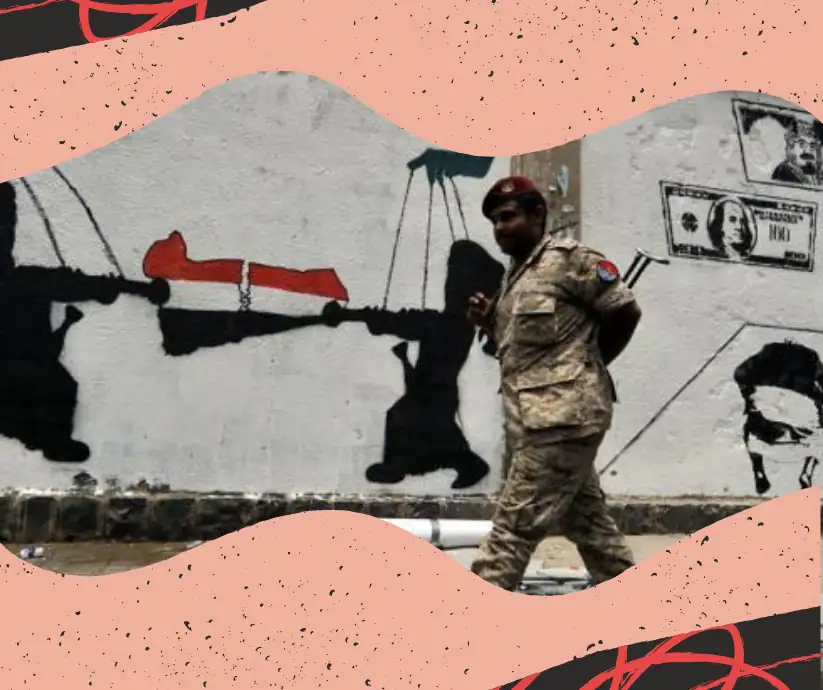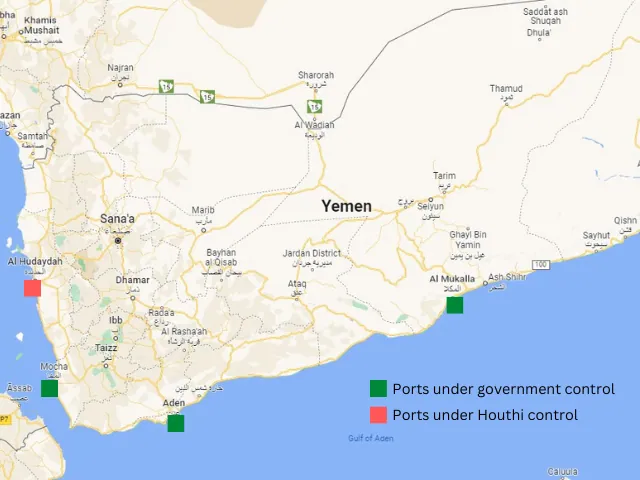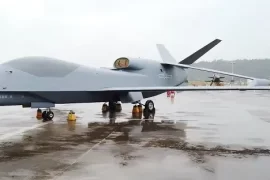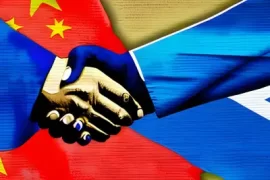After years of tension and conflict between Saudi Arabia and Iran, a recent rapprochement has raised questions about its impact on the region, especially on Yemen, where both countries have been participating in a devastating civil war. In this article, we will explore the potential implications of the recent Saudi-Iran rapprochement on Yemen.
Background: Yemen’s devastating civil war and the role of Saudi Arabia and Iran
Yemen has been one of the countries most affected by the Saudi-Iran rivalry.
In 2014, a civil war erupted in Yemen, which pitted the Houthi rebels, backed by Iran, against the internationally recognized government, supported by a Saudi-led coalition. Since then, the war has claimed thousands of lives and plunged the country into a humanitarian crisis.
Saudi Arabia’s involvement in the Yemen conflict began in March 2015, when a coalition of Arab states led by Saudi Arabia launched a military intervention in support of the Yemeni government. The intervention was launched in response to the Houthi rebels’ takeover of the Yemeni capital, Sanaa, and their advance toward the southern city of Aden.
Saudi Arabia’s primary objective in the conflict was to restore the Yemeni government and prevent the Houthis, who they viewed as an Iranian-backed group, from gaining control of Yemen. The Saudis have provided military support to the Yemeni government in the form of airstrikes, ground troops, and naval blockades.
Iran, on the other hand, has denied providing direct military support to the Houthis. But Saudi Arabia has been accusing Iran of providing financial and logistical support to the group. Iran has also been accused of supplying the Houthis with weapons, including missiles and drones, which they have used to target Saudi Arabia.
Iran’s involvement in the conflict is driven by its desire to expand its influence in the region and counter Saudi Arabia’s dominance. Yemen is strategically located on the southern tip of the Arabian Peninsula, and Iran views the country as a potential foothold in the region.
The conflict in Yemen has become a proxy war between Saudi Arabia and Iran, with both sides supporting opposing groups.
After an April 2022 truce brokered by the United Nations, Yemen has experienced a notable reduction in violence. Although the truce officially ended in October of that year it seems to be holding, and the Houthis and Saudi Arabia engaged in talks sponsored by Oman.
Timeline of the Yemen Crisis
The Yemen crisis has been ongoing since 2014 and has gone through several stages. Here is a timeline of some of the major events:
September 2014: Houthi rebels, who are aligned with Iran, capture the Yemeni capital of Sana’a, forcing President Abdrabbuh Mansur Hadi to flee to Aden.
March 2015: Saudi Arabia and a coalition of Arab states launch a military intervention, named Operation Decisive Storm, in Yemen to support Hadi’s government and push back the Houthi rebels.
April 2015: The United Nations Security Council imposes an arms embargo on the Houthi rebels and forces loyal to former President Ali Abdullah Saleh.
April 2016: UN-sponsored talks between the Hadi government and the coalition of Houthis and former President Saleh’s General People’s Congress.
December 2017: The Houthi rebels kill Saleh after he announces he is switching sides and will work with the Saudi-led coalition against them.
June 2018: The United Arab Emirates (UAE), a key member of the Saudi-led coalition, launches an offensive to capture the strategic port city of Hodeidah, which serves as a major entry point for humanitarian aid.
December 2018: The warring parties agree to a ceasefire in Hodeidah and the withdrawal of forces, but the agreement is not fully implemented.
April 2019: A bipartisan congressional measure that would have compelled the US military to terminate its involvement in the Yemen war was vetoed by President Donald Trump.
July 2019: The Southern Transitional Council (STC), which is backed by the UAE, declares self-rule in southern Yemen, exacerbating tensions within the anti-Houthi coalition.
August 2019: The Houthis launches an operation called “Operation Victory from God” against forces led by Saudi Arabia, and they persist in intensifying their assaults on oil facilities in Saudi Arabia.
November 2019: The STC and the Yemeni government, backed by Saudi Arabia, sign a power-sharing agreement in Riyadh.
December 2019: The Houthi rebels launch a missile attack on a military parade in southern Yemen, killing dozens of people, including several high-ranking officials.
April 2020: The Saudi-led coalition announces a unilateral ceasefire to help prevent the spread of COVID-19 in Yemen, but fighting continues.
December 2020: The Hadi government and STC formalized a new power-sharing agreement in Aden.
January 2021: The Trump administration designates Houthis as a foreign terrorist organization (FTO).
February 2021: The Biden administration announces an end to US support for offensive operations by the Saudi-led coalition in Yemen, but stops short of ending all military aid. It also revokes Houthis’ FTO designation.
September 2021: The UN warns that Yemen is on the brink of a “catastrophic” famine, with millions of people at risk of starvation due to conflict and a lack of humanitarian aid.
November 2021: Houthis seize the former location of the US Embassy in Sanaa, resulting in the detention of local staff. The United States urges for their immediate release and demands that the Houthis evacuate the premises.
March 2022: Saudi Arabia declares the halt of all military operations in Yemen.
April 2022: The UN brokers a 2-month-long truce between the warring parties.
October 2022: The UN-brokered truce ended
March 2023: Saudia Arabia and Iran agree to restore their ties. Discussions start in Geneva between representatives of Yemen’s government and the Iran-backed Houthi rebels
Who are Houthis?
The Houthis, also known as Ansar Allah, are a rebel group in Yemen that emerged in the early 2000s. The group primarily comprises Zaidi Shia Muslims, a minority sect in Yemen that makes up around one-third of the country’s population.
The Houthis take their name from Hussein Badreddin al-Houthi, a leader of the group who was killed by Yemeni forces in 2004. Since then his brother Abdul-Malik al-Houthi has been leading the group.
The Houthis’ stated goals include the promotion of Zaidi Shia interests in Yemen and the establishment of a more inclusive government that represents all Yemeni people. They have been involved in several conflicts with the Yemeni government and have been accused of receiving support from Iran, which is predominantly Shia.
What does the Saudi-Iran rapprochement mean for Yemen?
The recent rapprochement between Saudi Arabia and Iran has raised hopes for a resolution to the Yemen conflict.
According to Firas Maksad, a senior fellow at the Middle East Institute in Washington, DC, and adjunct professor at George Washington University, the Yemen war was likely the priority on the agenda for both countries. He believes that the reconciliation process could pave the way for a peaceful settlement of the conflict, reported CNN.
In a statement, the Iranian mission to the United Nations said that the reconciliation “would accelerate the ceasefire, help start a national dialogue, and form an inclusive national government in Yemen,” Iran’s state news agency IRNA reported.
Hussein Ibish, a senior resident scholar at the Arab Gulf States Institute in Washington, DC, told CNN that Iran may use its leverage against the Houthis to push for a resolution to the war.
However, according to Elizabeth Kendall, a Yemen expert from Cambridge University’s Girton College, although the Saudi-Iran deal is a positive development it is unlikely to bring a swift resolution to the Yemen conflict, as the root causes of the conflict are domestica, concerning issues of power, territory, and resources, reported AFP.
The news agency reported a range of challenges including a collapsed economy that has left millions dependent on aid, a significant Al-Qaeda presence, and separatist movements in the south. The southern region of Yemen was a separate, communist-ruled country from 1967 to 1990, adding to the complexity of the country’s challenges.
“Even if the Saudis and Huthis reach a peace deal, various domestic actors remain and serious controversies are likely to erupt over who controls power in Yemen, particularly in the south where southern separatists continue to push for an independent state,” Kendall added
What do the Houthis say?
Abdulwahab al-Mahbashi, a member of the Houthis’ political wing, told Lebanon’s al-Mayadeen TV that a resolution to the Yemen conflict must be achieved through direct negotiations with Riyadh. He added that the Houthis are not “subordinate” to the Iranians, suggesting that Iran’s influence over the group may not be as significant as some believe.
Efforts to end the Yemen crisis
A delegation of Saudi and Omani officials will visit Yemen’s capital Sanaa in the second week of April 2023 to discuss a permanent ceasefire deal with Houthis, reported Reuters. Oman has been mediating talks between Saudi Arabia and Houthis for years in parallel with the UN peace efforts.
As a positive gesture, the Saudi-led coalition has lifted the eight-year-old import restrictions for ships heading to Yemen’s southern ports, including Aden. These commercial vessels can now directly dock at these ports without having to stop at Jeddah for security clearance. This move followed the easing of restrictions on commercial goods entering Yemen’s primary seaport of Hodeidah, which has been mostly under Houthi control since September 2014.
Summary
The Saudi-Iran rapprochement has created hopes for a peaceful resolution to the Yemen conflict. However, we have to wait to see how it will impact the situation on the ground. The Houthis, who have been the most significant beneficiaries of Iran’s support, may not be willing to cede ground easily, and direct negotiations with Saudi Arabia may be necessary. Nonetheless, the fact that both Saudi Arabia and Iran seem committed to resolving the conflict is a positive development for Yemen and the wider region.









